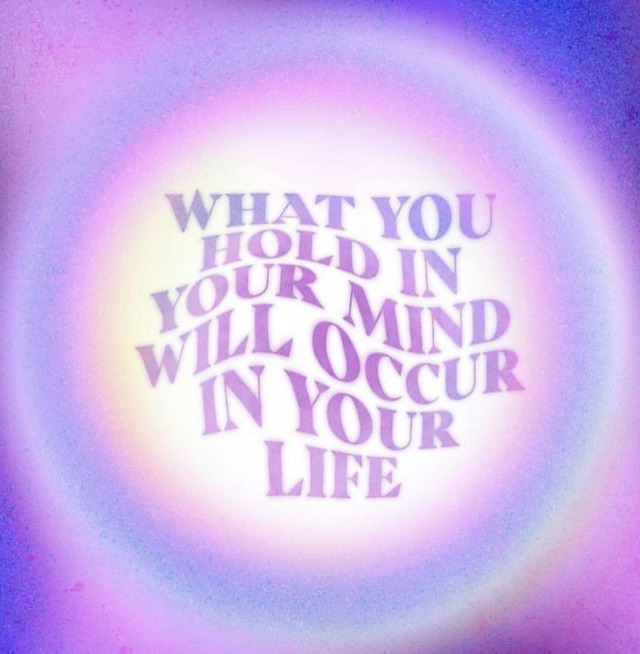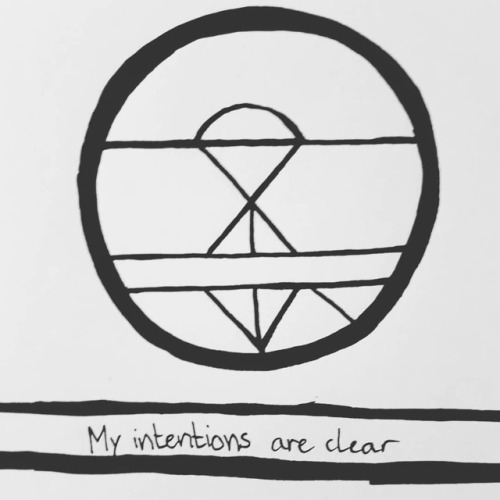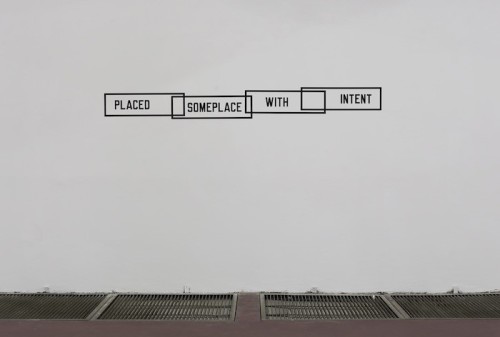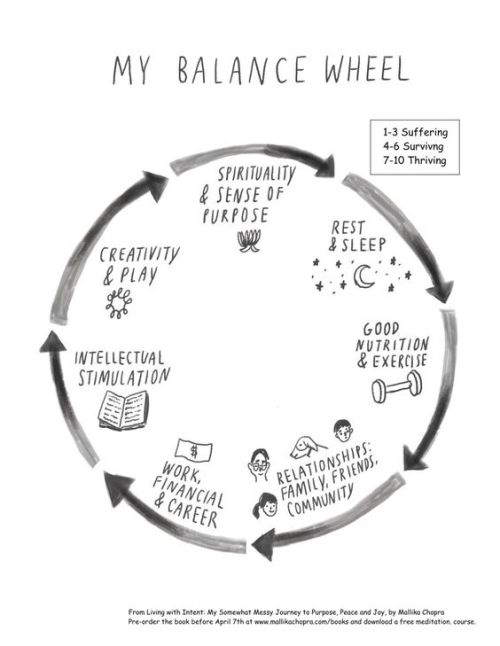#intent
Nearly the end of the first full week of 2019. Hopefully the fog is clearing, you’ve set your intent for the year and you’re on you way already to achieving your 2019 goals!
•
Surfer♀️~ @ikit_agudo
Pic~ @camillerdp
•
•
•
#surfsirens #surflikeagirl #surfgirl #surfergirl #intent #2019 #surflife #rain #siargao #ladyslider #goals #girlsurfer (at Siargao Island)
https://www.instagram.com/p/BsbVeMaBmEc/?utm_source=ig_tumblr_share&igshid=1j2jkq6beutpa
Post link
“My intentions are clear”
Whether you want to get a point across or just want to make sure to be seen as friendly and not flirty - or the opposite. Intentions can be finicky, but with a little practice and a little help, you know for sure Diane will know you are getting close to her for the sake of free food and not a romantic relationship. Or, well, a romantic relationship and not for free food. The line is a bit unclear.
Sigil request status on my blog.
Post link
One thing that A Series of Unfortunate Events does really well is that it establishes very early on to a quite young audience that sometimes people don’t mean it personally when they hurt you, but that doesn’t excuse their behavior.
Take Mr. Poe for instance: in every single encounter the Baudelaire orphans have with him, he messes everything up. He consistently puts the children in dangerous situations just because it’s convenient for him, he never listens to what the children actually have to say, and he refuses to be held accountable for his own mistakes, thereby dooming himself to make them over and over again.
If you divide it up evenly, Mr. Poe is just as responsible for the children’s ill fate as Count Olaf because for every single book in which he’s involved, and up through The Carnivorous Carnival in the Netflix series, he is capable of righting the situation and saving the children and he still decides to save his own behind rather than helping the children who are in dire need of an adult figure they can trust. Desmond Tutu famously said that “if you are neutral in situations of injustice, you have chosen the side of the oppressor”.
And yet, Handler draws a distinctive line between Mr. Poe and Count Olaf in the series because one truly is worse than the other. Mr. Poe doesn’t mean to harm the children, and genuinely does care about their wellbeing, even if he is awful at doing so. He is always appalled when Count Olaf is actually revealed at the end and he does want the children to be safe. Count Olaf on the other hand actually hates the children and means to cause them harm.
The series draws the same distinction between Charles and Sir in that regard and Jerome and Esme, as well. It makes the point that people hurt each other and do harm in the world for all sorts of reasons and very rarely is it personal - that we shouldn’t take it personally when people are bad because adults are fallible too and sometimes they make mistakes without thinking. But even more so, the series makes the point that unintentionality does not excuse the harm that they do. Just because someone doesn’t hate you and that someone didn’t mean to harm you doesn’t mean you are obligated to forgive them or be understanding of their position. So often in this world people make excuses for their behavior, saying they didn’t mean to do something or they didn’t understand the effect it would have or they just weren’t listening and we’re expected to accept their apology and move on because we’re told intent means everything.
But the thing is, intent isn’t everything. Intent is only half the battle and our actions always have consequences, regardless of whether we like those consequences or not. Ignorance is not an excuse for inaction because it is our responsibility in the world as citizens of the world to be conscious of the effect our choices could have on others. The Baudelaire orphans never forgive Mr. Poe, and in The Penultimate Peril when Mr. Poe approaches them and offers them help and offers to take them to their next home, they refuse his help and their refuse his apology because his intentions in that instance don’t matter because he created great harm in the world and just because he didn’t foresee it doesn’t mean that he couldn’t have. This follows the same vein as excusing someone’s behavior because it was rooted in deep trauma or mental illness or justified revenge - the reason why someone did something wrong doesn’t matter, they still did something wrong and they need to face up to their crimes.
It was an important message then, but I think it’s an even more important one now in the political climate that we live in. There are so many people in this world right now who want to cause harm: neo-Nazis, the alt-right, homophobes, transphobes, racists, sexists, and we have an administration that actively takes delight in causing harm to oppressed people as long as it stands to benefit them in some financial way. They know they are hurting people and they continue to do so anyways so long as it makes them more comfortable. These are the Count Olafs of the world.
But then there are the ignorant people that support Trump and his administration, that do racist things like calling the cops on black people just because they look “suspicious”, or use their religion as an excuse to justify discrimination, and simply regurgitate everything they’ve been told by others just as ignorant as them about the way the world ought to work, and those are the people who pave the way for the Count Olafs of the world. It is easier to excuse their bad behavior because they really don’t mean for what they do to cause harm - most of the time they genuinely think they’re doing the right thing - but their actions have just as big of consequences as the actions of the Count Olafs. The children never would have ended up in Count Olaf’s clutches time and time again if Mr. Poe hadn’t put them there. The Count Olafs are worse, and it’s important to recognize the difference between intended harm and unintended harm, but we have to hold the Mr. Poes of the world accountable too, because ignorance is just as much a choice as malice.
A witch with brain fatigue
You’ve probably heard it a thousand, no, a million times by now. That you don’t need ingredients, that all you need for a spell is intention and to visualize it coming true.
But what about those who don’t have the mental energy for that? I myself am in year two of recovering from severe brain fatigue and haven’t gotten any better. I’m only allowed to reread books, no new ones, no cross words, no music in earbuds, no exercise above a light jog or some simple yoga. My brain is quite literally broken, and if I exert myself too much it will take longer for it to heal.
While intent can be important, it isn’t really available to put that mental effort in for everyone. My cognitive capacity is so bad, I can barely do 5th grade maths sometimes. How am I supposed to pour all my intent and energy into a spell when I have nothing to spare?
Intent is powerful, but so is that pinch of salt. It can cleanse and protect you, and you don’t have to empty out all your energy for it because it has inherent properties whether you charge it with your own energy or not. That pinch of cinnamon can protect you, and you don’t have to visualize a big bubble around you.
Visualization and putting your own energy into things in a spell is tiresome for anyone who doesn’t have much energy to spare. Something as simple as charging a simple can push me over the edge and set me back in my recovery.
Remember, you don’t need to be strong mentally to do witchcraft or any other esoteric practice. I don’t care if intent is touted as the key ingredient, because it isn’t a viable option for me, and if it isn’t for you, don’t feel forced to focus on it.
Your practice is just that, yours. Don’t let anyon else decide what it should look like.
Lunar Eclipse in Taurus
19th November 2021
We are entering into another Eclipse Season with a Lunar Eclipse in Taurus. The main download I have received for the collective is to balance the spiritual and material sides of yourselves.
Look back to late May and early June, when we were in the first eclipse season of the year. What was stirred up in your life? You might finally find closure in that area now. Or perhaps new changes will emerge.
The Full Moon is going to be aspected by Jupiter,MercuryandPluto. With all these planets working together, there is an amazing opportunity to bring your desires into life, if you do it right.
Some of us may feel feel a new sense of ambition and alignment but there’s also a strong possibility of becoming overly emotional and sensitive.
Working with eclipse energy can be quite challenging and you should be extra careful with your intentions, as it may backfire on you. Be careful what you wish for!
What to focus on:
- Looking back at the last eclipses this May/June and tying the loose ends
- Calling back your energy
- Tuning into your spirituality
- Getting yourfinancesand material possessions under control
- Finding abalancebetween the spiritual and material
Watch out for:
- Beingoverconfident and toodomineering
- Extreme emotional reactions
- Blind faith
- Reckless manifestations and spells
I wish you a lovely Lunar Eclipse✨
What is Intention?
Intention by definition is simply purpose. In witchcraft, intention is more than that. Its channeling magick in a certain direction. Its deciding what you want out of a spell or ritual, or even life in general. Its about asking the universe for something so you should be as clear and specific as possible. It is where most of the spell’s power comes from. A spell is a very powerful placebo that you create that is so powerful that if done correctly can manifest anything into your life. Its a skill that is developed over time. Although this is literally the bases of all witchcraft some could argue, it is often overlooked by witches. I think this is because it seems to basic, but you have to completely master the basics before you can more on to greater things. This is true for any area of life.
Why set an Intention?
Intention is important because without it spells would have no purpose and wouldn’t even work to begin with. It is important to communicate your desire to the universe in order for your spell to work. It is also important in the situation where you accidentally manifest something you do not want. This will save you time as to not waste a spell away just because you didn’t take the time to set your intentions. And of course, lets not forget the law of attraction and how relevant it is to your intent. Stay positive.
How do I Set a Clear and Powerful Intent?
To start the process, cleanse your mind. Do a brain dump of everything that is on your mind or meditate on your intention for a while. Even both if you are up to it. This is to prepare yourself for the spell itself. Once you have that intention in your mind, you can harness that power by making sure all your thoughts and feelings support that intention. That’s what will make your intention as strong as possible and therefore your spell will be as strong as possible. One way to strengthen you intention is to simply verbalize or write it. Make sure to include a time frame in your statement, as this combined with your desires is what makes intent. Another way is to experiment with rituals and exercises that really bring out your intent after it is verbalized or written. This is the spell work aspect of intention. And the final way to set a clear and powerful intention is of course practice. Try journaling exercises, meditations, talk about your intent with someone, and visualize your intent in any way you chose.
Is intention alone enough?
No. Intention alone is not enough to make your spells work, but it is a crucial first step that must be taken. You have to change you behavior too, before and after the spell is through. You must change your actions to comply with what your intentions are. For example, you do a financial prosperity spell, then you go out and work harder at your job. Those two actions combined is a powerful thing that will bring you prosperity. This also is a show of your values. Your thoughts combined with your actions is the magick in your spell.
A List of Intentions:
There are types of intentions such as something immediate, relating to your relationships, work life, body, mindset, spiritual health, physical surroundings, emotional, creative, financial, the earth, and all humanity.
- Banishment: keeping away negativity and negative energy
- Beauty: for looking, expressing and feeling lovely and attractive
- Binding: prevent harm, avoid danger, stop someone from performing a particular act; restriction
- Business/Career: for success in one’s career, job hunting
- Calming: relieve stress
- Catalyst: stimulating a spell
- Charge: store energy into something
- Chasity: celibacy, innocence
- Confidence: courage, self assurance and empowerment
- Creativity: expression, imagination and improving artistic skills
- Communication: improving communications and understandings with friends, family, spouses, etc; communicating with other forces
- Cleanse: removing unclean energies and presences from self, objects or areas
- Curse: bring negative energy into something or into someone’s life
- Desire: gaining what one has strong feelings of want for or seeking to be wanted by others
- Divination: clairvoyance, gaining insight
- Discourage: prevent something from occurring
- Dreams: bring dreams, relates to the dream realm
- Emotional: spells focused on certain emotions
- Encouragement: supporting and influencing something to happen
- Exorcism: expelling evil spirits
- Fertility: for conception
- Fidelity: loyalty and faithfulness
- Friendship: bonding and connections
- Fortune: good luck
- Forgotten: leave memories behind
- Frugality: saving money
- Glamour: illusions and perception
- Generosity: kindness and good will
- Happiness: joy and merriment
- Healing: recovery and repair
- Inspiration: gaining ideas and drive
- Invisibility: going unnoticed, stealth
- Judgment: improving decision making and choices
- Longevity: increasing length/duration of things
- Love: Romance
- Lust: Libido and sex drive
- Memory: remembrance
- Motivation: determination
- Patience: tolerance
- Peace: tranquility
- Prosperity: well-being
- Protection: guarding, safety and warding
- Psychic: improving any psychic ability or connection
- Purification: purifying an object or space
- Guidance: spiritual, mental, supernatural guidance, advice and bonds
- Severing: cutting ties from others
- Spirituality: for belief
- Strength: brawn, endurance; physical, emotional, mental and spiritual
- Truth: honesty with self and others
- Wealth: increasing money and physical possessions
- Wisdom: decisions, intelligence, learning
- Wish: gaining things and desires
One thing about fandom culture is that it sort of trains you to interact with and analyze media in a very specific way. Not a BAD way, just a SPECIFIC way.
And the kind of media that attracts fandoms lends itself well (normally) to those kinds of analysis. Mainly, you’re supposed to LIKE and AGREE with the main characters. Themes are built around agreeing with the protagonists and condemning the antagonists, and taking the protagonists at their word.
Which is fine if you’re looking at, like, 99% of popular anime and YA fiction and Marvel movies.
But it can completely fall apart with certain kinds of media. If someone who has only ever analyzed media this way is all of a sudden handed Lolita or 1984 or Gatsby, which deal in shitty unreliable narrators; or even books like Beloved or Catcher in the Rye (VERY different books) that have narrators dealing with and reacting to challenging situations- well… that’s how you get some hilariously bad literary analysis.
I dont know what my point here is, really, except…like…I find it very funny when people are like “ugh. I hate Gatsby and Catcher because all the characters are shitty” which like….isnt….the point. Lololol you arent supposed to kin Gatsby.
I would definitely argue that it’s specifically a bad way….a very bad way.
Depending on the piece of media, it could be the intended way to interpret it and thus very effective. When I watch Sailor Moon, I know at the end of the day that Usagi is a hero. She is right, and her choices are good. She and the Sailor Scouts may make mistakes, and those mistakes can have consequences, but by presuming the goodness of the protagonists, I can accurately describe what actions and values the story is presenting as good. (Fighting evil by moonlight. Winning love by daylight. Never running from a real fight. Etc etc)
If I sit around and hem and haw about whether or not Usagi is actually the villain because she is destined to reinstate a magical absolute monarchy on Earth in the future, then I’m not interpreting it correctly. I can write a cool fanfic about it, but it wont be a successful analysis of the original work.
But like I said, that doesnt work for all pieces of media, and being able to assess how a piece of media should be analyzed is a skill in itself.
I was an English major. One of our required classes was Theory & Criticism, and I ended up hating it specifically because of the teacher and the way she taught it, but the actual T&C part of it was interesting. And one of the things we learned about was all the different ways of reading/interpreting/criticizing media - not just books, ANY form of media.
Specifically, I remember when we read The Turn of the Screw, by Henry James. We had special editions of the book where the first half of it was the novel itself, and the last half was like five or six different critical analyses of the book from different schools of theory. The two I remember specifically were a Marxist interpretation and a feminist interpretation. I remember reading both of those and thinking “wow, these people are really reaching for some of this”, but the more I read into the analysis and the history of those schools of thought, the more I got it. So for my final paper for that class, I wrote an essay that basically had the thesis of “when the only tool you have is a hammer, every problem looks like a nail”. If you have trained yourself to view every piece of media through a single specific critical lens - well, you’re going to be only viewing it through that lens, and that means you’re going to read or watch it in such a way that you’re looking for the themes you’ve trained yourself to look for.
My teacher didn’t like that, by the way; she’d wanted each of us to pick one of these schools of thought we’d been learning about and make it “our” school of thought. She wanted us to grab the a hammer, or a screwdriver, or a spanner, and carry that with us for the rest of our lives. She somehow didn’t expect me to pack a toolbox.
My point is: Like OP said, sometimes the tool you need is a hammer. Sometimes you need a screwdriver. Sometimes you can make a hammer work where what you need is a screwdriver, but you’re going to end up stripping the screw; sometimes you can use a screwdriver in place of a hammer, but it’s going to take a lot more effort and brute force and you risk breaking the screwdriver. Sometimes you need a wrench and trying to use a hammer or screwdriver is going to make you declare that the bolt is problematic and should never be used by anyone. Sometimes what you really need is a hand saw, and trying to use any of the others…well, you can, but it’s going to make a mess and you might not be able to salvage the pieces left over.
These skills aren’t being taught in school anymore and you can see it in the way high school aged kids act about media and stuff.
They wouldn’t survive something like Lolita because I swear they’re being taught to turn their brains OFF and be spoon fed all their thoughts by someone else.
It’s really creepy.
I promise these skills are taught in school. I’m an English teacher. In a school. Who teaches them.
Now, Lolita is generally reserved for college classes. But a lot of the rationale behind continuing to teach the “classics” in high school (beyond the belief that a shared literary foundation promotes a better understanding of allusions and references) is that a lot of the classics are built on these kinds of complex readings and unreliable narrators and using historical and cultural context helps in their analysis. (I do think that we should be incorporating more diverse and modern lit into these classes, please understand)
Do all schools or individual teachers do this *well*? No, of course not. Do all students always really apply themselves to the development of deep critical thinking skills when their teacher pulls out A Tale of Two Cities? Also no.
But this isnt a “public school is failing / evil ” problem. Being able to engage in multiple forms and styles of analysis is a really high level skill, and my post was just about how a very common one doesnt always work well with different kinds of stories.
OP, why do you describe analyzing Sailor Moon in a different way than (you assume) the author intended as “hemming and hawing?” I would argue there’s a lot of value in approaching texts at a different angle.
Because ignoring context, tone, and intent when analyzing media is going to lead to conclusions are aren’t consistently supported by the text you are looking at.
“Usagi is a villain because she’s a queen and I think absolute monarchy is bad” ignores the way that Usagi, the moon kingdom, and basically all aspects of the lore are actually framed within the story. None of the characters’ actions or motivations make consistent sense if we start from the assumptions that “Usagi = monarchist=evil” and it would cause you to over look all the themes and interpretations that DO make consistent sense.
At some point you have to take a work at face value and see what it is trying to say.
Is the breakdown of monarchy actually relevant to the themes and messages presented in Sailor Moon? No, not really.
So focusing on the Moon Kingdom monarchy and the ethics there of is sort of… besides the point. The Moon Kingdom is a fairy tale, not a reflection of reality.
I’m not actually interested in the tax policy of the Moon Kingdom, you know?
Now, is it *cool* to look at works in various ways? Sure! Are some people interested in the tax policy of the Moon Kingdom and want to explore what that would look like? Sure! And honestly if you want to explore the ramifications of idyllic fairy tale monarchies on the real world, then that’s really cool too!
But if you are looking at a work to understand what it is trying to say with the text itself, then you need to take some of its premises at face value. Usagi and the Sailor Scouts being the Good Guys is one of those premises.
And really the “Usagi is secretly a princess from the moon” is just a part of the escapist fantasy for most little kids watching more than it has anything to do with actual themes of monarchy.
There is a lot of value in being able to look at a text from various angles. And it’s perfectly okay to use a text and concept as a jumping off point for other explorations.
But the problem comes when people say that Usagi was definitively a villain in Sailor Moon, or that say Steven Universe with themes of family and conflict resolution is excusing genocide by not destroying the Diamonds. It misses the point of the fantasy. It misses the important themes, the lessons and point of the show to look at it like that.
Basically: reinterpretations are cool, but you gotta know how to take a work on its own premises too.
Exactly. Like, magical princess that shows how monarchies (or the idea of princesses in general) is broken or toxic? Utena and Star vs The Forces of Evil are right there.
The idea of a cute talking cat granting girls magical powers to turn them into warriors against evil and getting them killed being evil? Not a good take on Luna, but Kyuubei in Madoka? Exactly this. That’s like, the point of Kyuubei- to riff on the trope that Luna, and Kero, and Mokona represent.
Media can raise all sorts of interesting conversations and discussions and ideas. But there’s a very real difference between trying to awkwardly force those readings on a work where the tone and framing and context don’t support it and acting like the media is actually supporting those messages, and using those ideas to explore it in a different work or to analyze the trope across the genre more broadly.
Moral and pure does not a protagonist make, and fandom is rife with that exclusive interpretation of storytelling. OP makes really good points; this thread is one of the best analyses I’ve read about lit crit on this site lately.
Stories aren’t made in a vacuum– every trope/theme/character archetype comes from somewhere and (general) you do yourself a disservice by viewing everything as whether it’s morally uncorrupted or not.
INTENT TRUMPS EVERYTHING | DailyVee 006
I talk about intent a lot in this one, and have an insane day of back to back meetings. Somehow also found time to interview for a podcast. The day was packed and exciting, but the real value comes from the conversations I got to have with so many amazing people.
Been a while since I’ve uploaded something, but that’s what happens when life gets in the way. But hey got some time to mess around in photoshop.
These are titled Intent.
Post link
here is a link to sun’s witch academy database, where you can find information on a variety of topics as they are posted!
intent
intent is a very simple concept, but it is one of the most important to understand. simply put, intent is what you want to happen, though the methods of getting what you want vary greatly.
examples
one: jar spell
i want to make a jar spell (a classic sun example lmao). my intent is what i want the jar spell to accomplish! say that this one is to achieve happiness and positivity. i will make a recipe for this jar spell using gemstones, herbs, and any other objects who’s energies correspond with happiness! the best thing about intent is that there is a lot of flexibility with it, and not all jar spell recipes for happiness will be the same. if you don’t like my recipe or don’t have one of the ingredients, you can easily change or substitute it, or even find another recipe with the exact same intent!
two: energy work
i want to charge an object with energy, to store it there so that i can access it later if i need it. that is my intent! all i need to do to accomplish this intent is to hold the object in my hand, focus on my intent, and channel energy into the object. this is the key to witchcraft: intent and energy.
three: warding
i want to make a ward that will burst into flame whenever someone i do not allow inside tries to pass them. that is my intent! for wards, this can also be called programming, as you are in a sense “programming” your ward and telling it what to do. to accomplish this intent, i would make a barrier or field of energy and then tell it directly what my intent for it is, then channel energy to seal that intent into the ward. it should do as it’s directed!
just remember
intent or energy alone is not enough. without energy, intent will not manifest, and without intent, energy has no purpose and will not accomplish any goal. it will simply exist. work on honing the specificity of your intent and the power of your energy!
Lawrence Weiner, Placed Someplace with Intent, 2014, language + the materials referred to, dimensions variable
Post link
Sigils was actually one of the first witchy things that I did when I was starting out! I did some researching and found there were heaps of ways to make sigils, and every person has a different way of making them.
This is the way I like to do it!
What you need:
- Pen
- Paper
- Extra paper/card stock/sticky note
What to do:
- Come up with a phrase of intent. it can be regarding protection, manifestation etc, but make sure it’s written in present test (ie my home is protected)
- Write it down then remove all vowels and repeated letters (ie myhsprtcd)
- Rewrite the new phrase, which is consisted of the remaining letters in order
- Connect the letters to numbers using the Pythagorean Numerology System (figure 1)
- Remove repeated numbers and rewrite the remaining ones (ie 4781923)
- Create a number wheel (figure 2). this one can be done with some creativity. the numbers 1–9 can be placed anywhere on the wheel, and you can change it around if you don’t really like the design it produces
- Draw a continuous line on the number chart by the order of the numbers you have written down
- Draw a small circle where the sigil begins, and a cross where it ends (eg 12)
- Redraw the sigil on an extra paper, card stock or a sticky note and activate it by giving it your energy for a few minutes, holding it while concentrating on your intent

figure 1: pythagorean numerology system
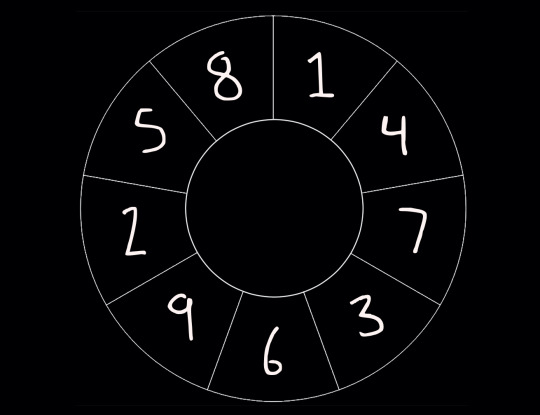
figure 2: number wheel
Optional:
To make it look a bit nicer and more original, you can include a loop instead of a harsh edge when going from one number to another
You don’t need to remove duplicate numbers or letters, but it makes the sigil cleaner in the end
There are so many ways that you can do this, so i’ll link some alternates below!
–––––––––––––
Here’s the explanation for fellow baby witches
Sigils are are great form of spell craft that are physical-based and very basic, which is perfect for beginners. They only require knowledge of the basics of witchcraft, including intent.
Intent is what your desire is, or the purpose of the spell. These are generally said in the present tense as they become definite that day. “Will be” can be very vague and may cause a delay in how quickly the spell works or if it even works at all.
The tense that intent is written in is super important, and can affect whether the sigil works or not. If written in past tense it would sound something like “my home was protected”, implying that it once was and is now not. You shouldn’t add anything like “I wish for…” either, as it would add unnecessary letters. “My home will be protected” is not specific enough and doesn’t specify a time frame in which the sigil should start, but don’t compensate by adding a time word like “next week. Present tense works the best because you want the sigil to be phrased as if it’s already in the continuous process of it happening.
ThePythagorean Numerology System is very commonly used in numerology which was originally made by Pythagoras (yup, the guy with that one triangle formula in maths). He came up with the idea that there was a relationship between numbers and letters, and those numbers could act as symbols for different qualities or natures.
The circle and cross represent open and close, or the start and end of the sigil, which bonds it to the intent, and the intent only, so it can’t be altered after it’s complete unless remade.



